- Home
- Center for Peace, Democracy & Development
- About
- Faculty Fellows
Senior Faculty Fellows
The CPDD Senior Faculty Fellows are faculty in the UMass Boston Department of Conflict Resolution, Human Security, and Global Governance whose research and practitioner work contributes to one or more of CPDD's key areas.
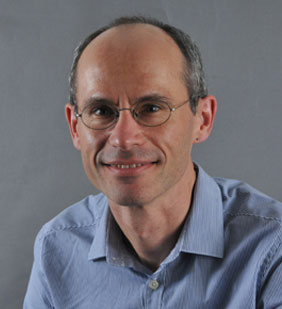
J. Samuel Barkin, Professor of Global Governance and Human Security
Samuel "Sammy" Barkin (PhD, Columbia University) is a prolific scholar in the areas of international relations theory and international organization, with particular attention to global environmental politics, international monetary politics, theories of sovereignty, and constructivist theory. His work has been published in International Organization, International Studies Quarterly, International Studies Review, Foreign Policy Analysis, Global Environmental Politics, Global Governance, Millennium, and Environmental Politics, among other journals, as well as in numerous edited volumes.
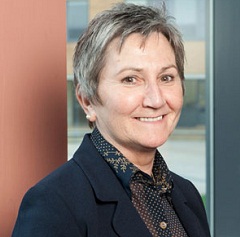
Marie Breen-Smyth, Visiting Professor of Conflict Resolution
Marie Breen-Smyth (DPhil, University of Ulster) is a distinguished scholar of political violence, conflict and international relations. She has had a long career as both a scholar and a practitioner working on the conflicts in Northern Ireland, the Middle East, and Southern and West Africa. She was active in peace-building in the Northern Irish peace process, established the Institute for Conflict Research in Northern Ireland, and led the first comprehensive research into the effects of the Troubles. Her research covers a diverse array of areas including human security, victim politics and the impact of armed conflict, the role of children in conflict in the United States and Northern Ireland, transitional justice, and post-conflict reconstruction. She is a founder editor of the journal Critical Studies on Terrorism, and author of many books and articles. She has also made two films with Northern Visions about the impact of political violence: And Then There Was Silence (2000, 62 min)) and Injured (2011, 59 min).
Jeanne Cleary, Lecturer in Conflict Resolution
Jeanne Cleary (MA, Lesley University) is a years-long instructor with the UMass Boston Graduate Programs in Graduate Programs in Conflict Resolution court mediation internship program. Since 1987, she has provided mediation, facilitation, relational psychotherapy, and training in her private practice in Watertown. With extensive experience in the resolution of domestic conflicts, she has trained mediators in basic and divorce mediation and, from 1987 to 2000, served as a clinical ongoing guardian ad litem, a court-appointed service which provides mediation, guidance and consultation to families with chronic child access disputes. She has also developed training and conflict engagement strategies for corporations, nonprofits, educational organizations and religious organizations. Jeanne has presented at numerous conferences including for the Massachusetts Association of Guardians ad Litem, Flaschner Judicial Institute, the Boston Bar Association Alternative Dispute Resolution Committee, the Massachusetts Psychological Association, and Harvard University’s Kennedy School of Government.
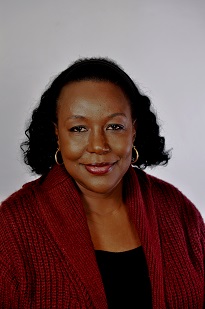
Amani El Jack, Affiliate Faculty and Associate Professor of Women's, Gender, and Sexuality Study
Amani El Jack (PhD, York University) is an associate professor in the UMass Boston College of Liberal Arts and an affiliate faculty member with the Department of Conflict Resolution, Human Security and Global Governance. She is a prolific scholar in the areas of gender, globalization, transnational migration, conflict resolution, islam, and international relations. Through her career, she has engaged in research and policy consultations with various global partners and scholarly networks. These include the Women in Conflict Zones Network; the International Center for Transitional Justice; the Globalization of Protracted Refugee Situations in long-term refugee camps project; Landmine Action; the Institute of Development Studies at Sussex University; and the Bonn International Centre for Conversion.
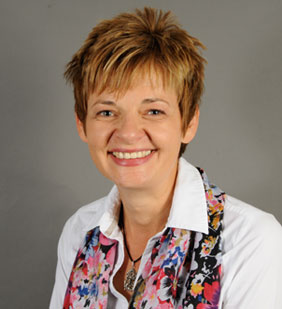
Maria Ivanova, Associate Professor of Global Governance
Maria Ivanova (PhD, Yale University) is an international relations and environmental policy scholar. Her research focuses on international environmental institutions and their performance, environmental sustainability, and the science-policy interface. Specifically, she studies the implementation of global environmental conventions and the policy processes around the Sustainable Development Goals. Her career is marked by teaching excellence and policy leadership. Her academic work has been recognized for bringing analytical rigor and innovative input to the international negotiations on reforming the U.N. system for environment. She works closely with national governments, UN agencies, and convention secretariats to provide an academic perspective on their international environmental governance work. She was co-director of UMass Boston's Center for Governance and Sustainability, a member of the Scientific Advisory Board of the U.N. Secretary-General, a board member of the U.N. University Institute for the Advanced Study of Sustainability (UNU-IAS) and the Global Young Academy, and an Andrew Carnegie Fellow.
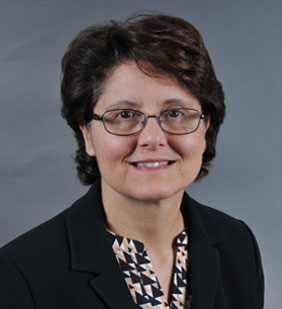
Susan Jeghelian, Lecturer in Conflict Resolution
Susan Jeghelian (JD, Boston College) is the executive director of the Massachusetts Office of Public Collaboration (MOPC) and an instructor with the UMass Boston Graduate Programs in Conflict Resolution. At MOPC, she leads the institutional planning, policy and budget development, fundraising, outreach, and qualification of practitioners for service on public contracts. She oversees the design, administration, and evaluation of programs and initiatives serving public agencies, legislators, courts, and communities. Susan has been with MOPC since 1993. Prior to orchestrating its move to UMass Boston, she led the implementation of Executive Order #416, which integrated dispute resolution into state government. Susan also helped to found the University Network for Collaborative Governance (UNCG), a national network of programs in colleges and universities that, through service and scholarship, enable citizens and their leaders to engage in dialogue, discussion, problem solving, and conflict resolution around public issues. She has served on UNCG's Steering Committee for many years, collaborating with other university centers on practice, teaching, and research to promote the field and impact communities.
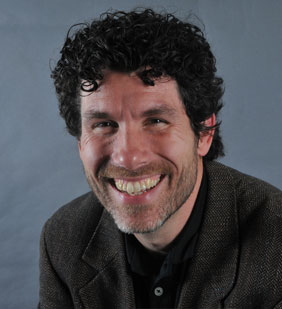
Darren Kew, Associate Professor of Conflict Resolution
Darren Kew (PhD, Tufts University) studies the relationship between conflict resolution methods and democratic development in Africa (especially Nigeria), focusing in particular on the role of civil society groups. His other research interests include civil society, conflict prevention, and transnational civil society development; international security and crisis intervention in Africa; culture, religion, and conflict resolution; international negotiation; and nation-building. He has worked with the Council on Foreign Relations' Center for Preventive Action to provide analysis and blueprints for preventing conflicts in numerous areas around the world, including Nigeria, Central Africa, and Kosovo. He has also been a consultant on democracy and peace initiatives to the United Nations, USAID, the US State Department, and to a number of NGOs, including the Carter Center. Darren is author of numerous works on Nigerian politics and conflict resolution, including the forthcoming book, Democracy, Conflict Resolution, and Civil Society in Nigeria (Syracuse University Press).
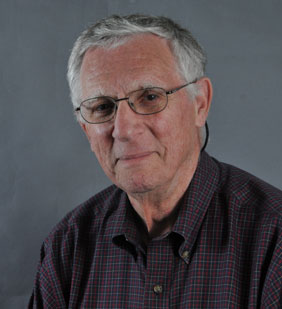
David Matz, Professor Emeritus
David Matz (JD, Harvard University) is the founder and former director of the UMass Boston Graduate Programs in Conflict Resolution and a principal with The Mediation Group in Brookline, MA. He has been active in the conflict resolution field for over 30 years as a mediator, trainer, and teacher. His work has focused on mediation and negotiation techniques and their relationship to the workings of organizations and courts. In the United States, David has been a leader in the development and use of assessment tools for court and community mediators, judges, and engineers. In Israel, he was central in developing policies and practices for the Israeli Ministry of Justice and Supreme Court in integrating mediation into the judicial system. He has also studied approaches to the peace talks between the Israelis and the Palestinians, worked extensively with Arab and Jewish groups in the U.S. and abroad, and is currently working with courts and law schools in China and Nigeria.
Craig Murphy, Faculty Fellow
Craig Murphy (PhD, University of North Carolina at Chapel Hill) is Professor of Political Science at Wellesley College and studies the global politics of economic development, global governance, international political economy, and international relations theory. He is a co-creator of UMass Boston's innovative doctoral program in Graduate Programs in Conflict Resolution which was launched in 2012. He has served as president of the International Studies Association (2000–01), chair of the Academic Council on the United Nations System (2002–04), and co-founding editor of the Council’s award-winning journal, Global Governance. He is actively involved with the effort to reform the United Nations' work throughout the developing world, including as a consultant for the World Economic Forum’s Global Redesign Initiative and for the FUNDS (Future of the U.N. Development System) Project. He has published widely on US policy toward the developing world, the economic debates within the UN, the UN Development Programme, the International Organization for Standardization (ISO), and the co-evolution of industrial capitalism and international institutions. Craig's current project focuses on private international regulatory standard setting – the production of things like ISO’s environmental (ISO14000) and social responsibility (ISO 26000) standards – which have become increasingly important during the current era of economic globalization in which intergovernmental agreement to limit the negative consequences of the new world economy has proved impossible.
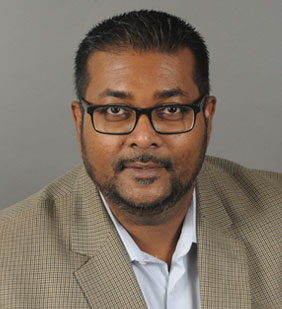
Madhawa Palihapitiya, Lecturer in Conflict Resolution
Madhawa "Mads" Palihapitiya (MA, Brandeis University) is the associate director of the Massachusetts Office of Public Collaboration (MOPC) and an instructor with the UMass Boston Graduate Programs in Conflict Resolution. He has over ten years of experience in the conflict resolution field, with significant work in the areas of violence prevention, program design, and program evaluation. He has been with MOPC since 2007, heading the research and evaluation unit. In this role, Mads oversees research on all major MOPC mediation, collaborative governance, and deliberative democracy programs, projects, and initiatives. Prior to working at MOPC, he was the director of programs at the Foundation for Co-Existence in Sri Lanka where he engaged in high-risk mediation and violent conflict prevention efforts, including co-creating a state-of-the-art Conflict Early Warning and Early Response System for Sri Lanka. Later, CPDD consulted Mads in the design and implementation of a similar system for the Interfaith Mediation Center in Kaduna, Nigeria as part of the USAID TOLERANCE project. Mads currently teaches a three-credit course on Collaborative Governance for the UMass Boston master's program in Public Administration.
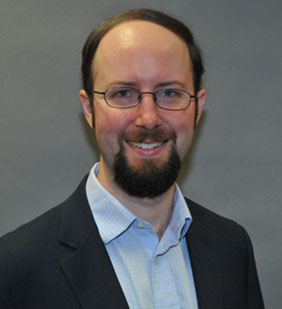
Jeffrey Pugh, Assistant Professor of Conflict Resolution
Jeff Pugh (PhD, Johns Hopkins University) studies the role of non-state actors and international institutions influencing governance and peacebuilding in the Global South, especially in migrant-receiving areas of Ecuador. His book manuscript, currently under review, argues that under the informal host-society expectations of economic contributions, combined with their political and social invisibility, migrants often gain access to rights, resources, and protection indirectly through brokered relationships within a governance network of non-state, international, and state organizations. In addition to his role at UMass Boston, Jeff is also the executive director of the Center for Mediation, Peace, and Resolution of Conflict (CEMPROC), based in Quito, Ecuador. Under his leadership, CEMPROC has reached over 5,000 adults and children from more than 20 countries around the globe with its conflict resolution and peacemaking training programs. Jeff has developed innovative experiential and study abroad programs to teach international conflict resolution at the university level through a combination of service-learning, simulations, lecture/discussion, and other teaching strategies. Currently, he co-directs the UMass Boston/FLACSO Summer Institute on Conflict Transformation across Borders in Quito, Ecuador.
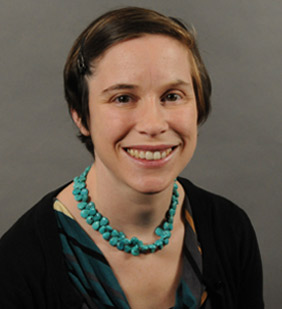
Karen Ross, Assistant Professor of Conflict Resolution
Karen Ross (PhD, Indiana University) studies the conceptual and methodological issues at the intersection between education, peacebuilding, and social activism. She is interested in how we can better understand the impact of grassroots peacebuilding programs, particularly educational ones. As part of this interest, she conducts research on how educational programs are linked to participation in social movements and other forms of social activism. Much of her research is based in Israel, focusing on the conflict between Jews and Palestinians (within Israel) and between Israel and Palestine, with involvement in additional interventions in South Africa and the United States. Outside of academia, Karen is a dialogue facilitator and facilitator trainer and has worked as a consultant for UNESCO, the Global Partnership for the Prevention of Armed Conflict (GPPAC), and the American Friends Service Committee.
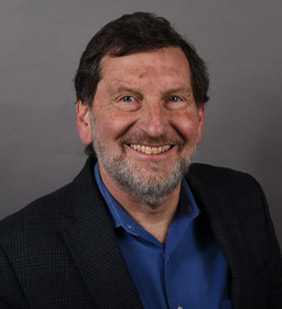
Malcolm Russell-Einhorn, Lecturer in International Relations
Malcolm Russell-Einhorn (JD, Harvard Law School) is a comparative law and public administration specialist with over two decades of experience in international development and teaching, including work in legal and regulatory reform, public administration capacity building, administrative justice, open policymaking processes, decentralization, and legislative development. As part of the International Relations MA program at UMass Boston, he has taught Democratic Governance, Decentralization and Development; and Theory and Content of Comparative Public Administration. He has also taught the capstone course for the master's program in Global Comparative Public Administration. As a CPDD senior faculty fellow, he is principal investigator on a 3-year, $943,000 USAID-funded initiative aimed at improving the quality and legality of administrative decision-making and enhancing citizen legal awareness in Rwanda. Malcolm has conducted research and provided technical assistance to a wide variety of governmental and non-governmental agencies overseas. He has published several articles in the international development field, focusing on comparative administrative law and legal frameworks encouraging transparency and accountability in government service delivery.
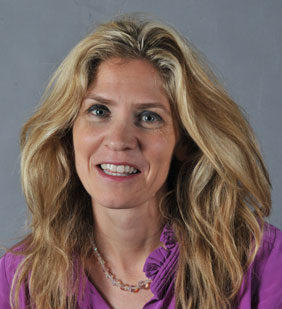
Courtenay Sprague, Associate Professor of Global Governance and Human Security
Courtenay Sprague (PhD, University of Witwatersrand) leads CPDD's Global Health and Development Research Group, as well as the Global Health track of the PhD Program in Global Governance and Human Security. Her research investigates factors that underpin health inequities among socially excluded or marginalized populations, exploring in particular the ways in which structural health determinants and health systems factors shape the health status and outcomes of women living with and at risk of HIV, as well as protective policies and interventions that support women’s health and their capabilities. Through her work, Courtenay has sought to capture the lived experiences of socially marginalized women and to elevate their voices in published research, using qualitative research methods to capture their agentic intentions and actions within social context. A trademark of her work, particularly in South Africa, has been to use the data and evidence in health systems (hospitals and clinics) to inform and guide proposed changes in social policy and clinical practice, while drawing attention to the state’s constitutional obligation in South African law and human rights violations. This research has informed changes at the national (South African) policy level related to treatment guidelines for women and children with HIV, as well as international policy discussions on safe infant feeding practices for women with HIV.
Douglas Thompson, Lecturer in Conflict Resolution
Doug Thompson (MSc, Northwestern University) is an instructor with the UMass Boston Graduate Programs in Conflict Resolution and a senior mediator with the Consensus Building Institute (CBI) in Cambridge, MA. He has a background in environmental protection and dispute resolution and management. He spent 25 years with the Environmental Protection Agency in various technical and management capacities, including as a mediator of environmental conflicts with the EPA dispute resolution program. Doug’s wide-ranging case work has included matters related to issues as diverse as drinking water disinfection, marine mammal concerns, nuclear waste and chemical weapons cleanup, state-federal interactions around technical and policy water quality issues, the credibility of green marketing and sustainable product claims, pandemic flu planning, federal environmental enforcement matters, tribal capacity building in the environmental area, and endangered species. He has mediated extensively in the MA court system and has experience in workplace and family disputes.
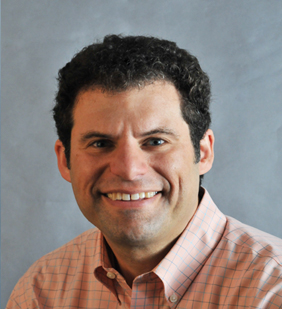
Eben Weitzman, Associate Professor of Conflict Resolution
Eben Weitzman (PhD, Columbia University) is a social and organizational psychologist specializing in the study of conflict. His work focuses on conflict within and between groups, with emphases on organizational conflict, cross-cultural conflict, and intergroup relations. In addition to his teaching and research, Eben does conflict resolution, organizational development, and dispute resolution systems design with a wide variety of individuals and organizations in both the public and private sectors. These have included organizations in human rights, health care, education, organized labor, government, law enforcement, social services, business, and the courts. He also served as grievance officer for the UMass Boston Faculty Staff Union from fall 2004 to spring 2008.